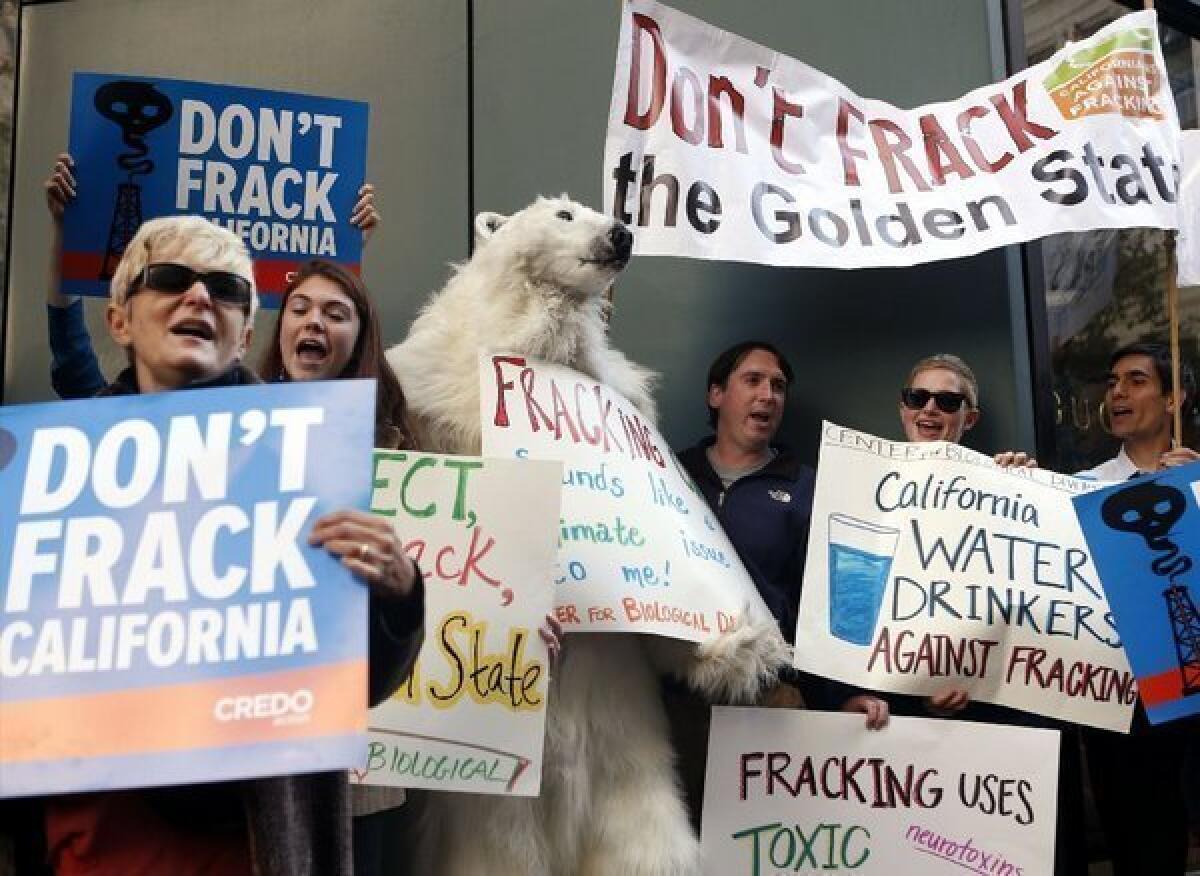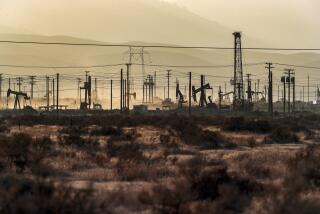Strict scrutiny for fracking

Gov. Jerry Brown has released draft regulations to govern fracking in California that very closely follow the lines of a bill passed this year by the Legislature. The problem is that the bill itself, though better than nothing, is not strong enough to ensure the safety of the state’s air, water and ground stability in the face of this controversial and not-yet-fully-understood practice.
Neither the bill nor the draft regulations make it clear whether the state will require environmental impact reports for individual fracking projects under the California Environmental Quality Act. The author of the bill, Sen. Fran Pavley (D-Agoura Hills), insists that it will. Representatives of various environmental organizations, including several that are generally supportive of the law, interpret the wording to mean that it won’t.
That would be big mistake. We agree with Brown that CEQA has become too cumbersome a law and that minor, inoffensive projects are sometimes delayed or halted by specious lawsuits brought under its provisions. But if there were ever a practice that cried out for a clearly defined CEQA requirement, it’s hydraulic fracturing, which involves the injection of chemically-treated water into the ground to fracture rock and release oil or gas. In California, oil companies are clamoring to get at 15 billion barrels of oil believed to be locked within the giant land formation called the Monterey Shale.
As large-scale fracking comes to California, there are understandable concerns about possible contamination of air and groundwater, and about the use of massive amounts of water in a drought-prone state. Another big concern is the link found in other states between earthquakes and the process of disposing of the wastewater from fracking by re-injecting it into the ground.
The proposed regulations at least would require a measure of monitoring and public information. Oil companies would have to disclose the chemicals they are using, though there are exemptions for trade secrets. They would also be required to monitor groundwater quality and make the information available to the public, and to notify neighbors before fracking begins.
In addition, the state will conduct two studies on fracking — a statewide environmental report and an overall safety report. Those are to be finished by the start of 2015.
We would have preferred a statewide moratorium on fracking, like the one in New York, until the studies were completed. Yes, fracking could create enormous numbers of jobs and billions in tax revenue, at least while the boom is on. But that would still be true in a couple of years, if the state ultimately determined the practice was safe. In the absence of a moratorium, the regulations should make clear that strict environmental scrutiny under CEQA is required before each fracking project begins.
More to Read
A cure for the common opinion
Get thought-provoking perspectives with our weekly newsletter.
You may occasionally receive promotional content from the Los Angeles Times.






